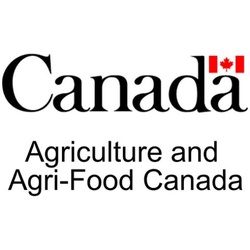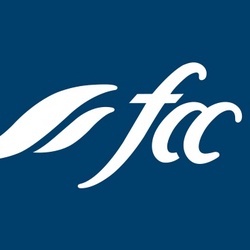
AgriCommunication Program
At a glance
- Up to 70% of project cost
- Receipt of requests is now closed
- Agriculture, forestry, fishing and hunting
- Retail trade
- Canada
- All legal structures
- All revenue ranges
- All organization sizes
- Canadians
Overview
Your not-for-profit organization can get a maximum of 70% funding of eligible costs on projects that focus on consumer awareness, sector awareness, and environmental sustainability, to build public trust within the agriculture sector.
Activities funded
The AgriCommunication Program supports projects that enhance public trust and cultivate consumer understanding of Canadian agriculture. Eligible activities focus on promoting awareness about farming practices and the food industry's commitment to sustainability.
- Projects that boost consumer awareness of Canadian agricultural practices.
- Initiatives that increase sector awareness of consumer perceptions and expectations.
- Efforts by the industry to promote environmentally sustainable best practices.
Eligibility
Eligibility criteria for this grant include:
- Applicants must be Canadian individuals, corporations, cooperatives, Indigenous groups, or non-profit organizations.
- Projects must focus on consumer awareness of Canadian agriculture, sector awareness of consumer perceptions, or industry efforts to endorse environmentally sustainable best practices.
- Applicants may apply for funding up to 70% of total eligible costs.
- Total government funding (including federal, provincial, territorial, and municipal governments or their agencies) typically won't exceed 85% of total eligible costs.
Who is eligible?
The eligibility criteria for the AgriCommunication Program are not specified in the provided context. Generally, such programs are open to organizations, groups, or individuals involved in agricultural activities or initiatives related to the priorities mentioned (consumer awareness, sector awareness, and environmental sustainability), but specific detailed criteria would be listed in a full guide or official program description.Who is not eligible
Some types of companies are not eligible for this grant. These include:
- Non-Canadian companies
- Companies outside of the agriculture or food industry
- Companies not focusing on increasing public trust in Canadian agriculture
Eligible expenses
The AgriCommunication Program supports projects that aim to enhance public trust and appreciation for the agriculture sector in Canada. Eligible activities must focus on increasing consumer awareness, sector perception, and sustainability practices.
- Projects enhancing consumer awareness of Canadian agriculture.
- Efforts to improve the sector's understanding of consumer perceptions.
- Initiatives promoting environmentally sustainable practices within the industry.
Selection criteria
There are evaluation and selection criteria for this grant. The criteria include:
- Relevance to the program objectives and priorities
- Quality of the project plan and activities
- Expected results and benefits
- Capacity and capability to deliver the project
- Reasonableness and appropriateness of the budget
- Overall assessment of the application
How to apply
Review the Applicant Guide
Contact Program Support for Assistance
Prepare Your Application
- Gather necessary documents such as project proposals, budgets, and any previous correspondence related to the project.
- Ensure the project aligns with one or more of the program priorities.
- Calculate the funding request ensuring it does not exceed 70% of total eligible costs.
Submit Application
- Prepare the complete application package according to the guidelines specified in the application guide.
- Submit the application package through the specified channel mentioned by the program announcement.
Confirmation of Submission
Additional information
Here are additional relevant details for this grant:
- Funding can cover up to 70% of total eligible costs for a project.
- The cumulative total government funding will generally not exceed 85% of total eligible costs.
Frequently Asked Questions about the AgriCommunication Program Program
What is the AgriCommunication Program?
How much funding can be received?
What expenses are eligible under AgriCommunication Program?
What is the deadline to apply?
Is the AgriCommunication Program a grant, loan, or tax credit?
Who are the financial supporters of the AgriCommunication Program?
Who is eligible for the AgriCommunication Program program?
Who can I contact for more information about the AgriCommunication Program?
Where is the AgriCommunication Program available?
More programs like this

AgriScience Program – Clusters
Agriculture and Agri-Food Canada (AAFC)
AgriCompetitiveness Program
Agriculture and Agri-Food Canada (AAFC)
Farm Equipment Financing
Farm Credit Canada (FCC)
Women Entrepreneur Program
Farm Credit Canada (FCC)
AgriAssurance Program – National Industry Association Component
Agriculture and Agri-Food Canada (AAFC)
African Swine Fever Industry Preparedness Program (ASFIPP) - Welfare Slaughter and Disposal Stream
Agriculture and Agri-Food Canada (AAFC)
AgriRisk Initiatives - Research and Development Contribution Funding
Agriculture and Agri-Food Canada (AAFC)
AgriRisk Initiatives - Microgrants Funding
Agriculture and Agri-Food Canada (AAFC)
AgriScience Program – Projects
Agriculture and Agri-Food Canada (AAFC)